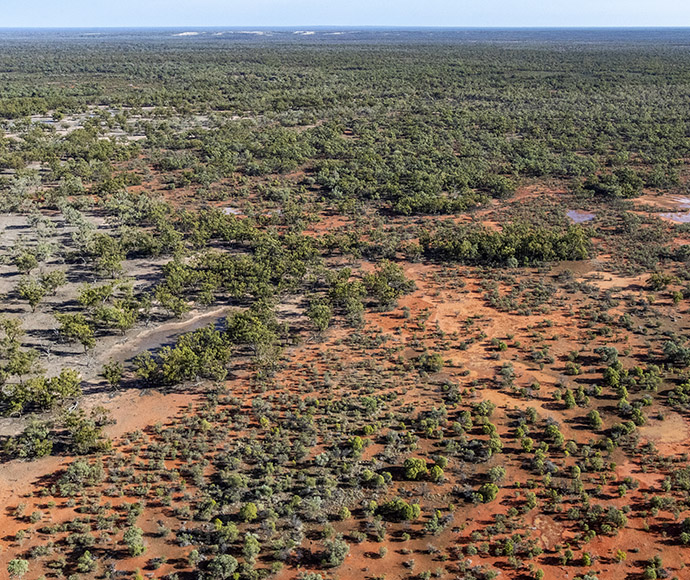Threatened species and vital wetlands in outback New South Wales will be protected in a new national park, following the acquisition of Comeroo station northwest of Bourke.

The NSW Government has acquired Comeroo, Muttawary and Maranoa stations (known collectively as Comeroo).
The purchase will see more than 37,000 hectares containing endangered ecological communities and an array of threatened species added to the NSW national park estate, managed by the National Parks and Wildlife Service.
Comeroo features diverse habitat including alluvial floodplains and swamps with permanent waterholes, ephemeral wetlands, grasslands, woodlands and shrublands.
More than one-quarter of the new park stretches across Yantabulla Swamp, which is recognised as an Important Bird Area, based on criteria used by BirdLife International. Yantabulla Swamp hosts thousands of internationally protected migratory shorebirds as well as up to 50,000 waterbirds including threatened freckled ducks, pink-eared ducks, grey teals, night herons and many other species.
Three ecological communities listed as endangered cover one-third of Comeroo. These are the Coolibah-Blackbox woodland, Brigalow-Gidgee woodland/shrubland and critically endangered artesian springs.
At least 13 known threatened species will benefit from permanently protecting this area. They include the stripe-faced dunnart, ringed brown snake, black-breasted buzzard, brolga, pink cockatoo, little eagle and Hall's babbler.
Comeroo is located in in the traditional Paroo and Warrego River country of the Budjiti, Kunja, Gurnu Baarkandji and Muruwari people. It contains extensive Aboriginal cultural sites including wells, waterholes, stone arrangements, widespread artefact scatters and scarred trees.
When combined with nearby recently reserved Brindingabba National Park and properties Yantabulla and Naree which have agreements with the Biodiversity Conservation Trust, this acquisition secures a contiguous area of more than 100,000 hectares for conservation.
The purchase is funded by the NSW Government with support from The Nature Conservancy which has brokered funding from the Wyss Foundation.
The new National Park will be established after the statutory process is completed, and is expected to be named then opened to the public in late 2024.
Quotes attributable to Minister for the Environment Penny Sharpe:
"This addition to the NSW national parks estate will protect vital wetlands in the Cuttaburra basin, part of the Paroo and the Warrego floodplains and some of New South Wales's and Australia's best waterbird breeding sites.
"Wetlands are some of the most endangered ecosystems on the planet, which is why this acquisition is so important.
"National park management and visitation are an important economic driver for regional New South Wales. In time, this will become another must-see national park destination. The construction of visitor experiences and driving tours will help people explore this vast new park."
Quotes attributable to James Fitzsimmons, Senior Advisor, Global, The Nature Conservancy:
"The Nature Conservancy is proud to have worked in partnership with the NSW Government and the Wyss Foundation on the protection of Comeroo.
"The property is in the Mulga Lands bioregion, which has some of the lowest levels of protection in New South Wales.
"These types of partnerships will be critical to achieving large-scale protection outcomes and meeting Australia's commitment to protecting 30% of land, freshwaters, and ocean ecosystems by 2030."
Quotes attributable to Professor Richard Kingsford, Director, The Centre for Ecosystem Science, UNSW Sydney:
"Yantabulla Swamp lies at the heart of the Murray-Darling Basin's healthiest river systems, connecting and supplied by the Paroo and Warrego Rivers.
"Permanent protection of this site is fantastic news for biodiversity and especially for waterbirds. The swamp is in excellent ecological condition, largely unaffected by upstream water resource development."
Pronunciation: Comeroo [kom-a-roo]






